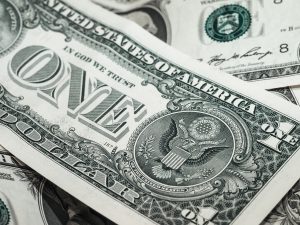Are You Ready For Closing Costs
When you’re purchasing a home, most of your budgeting is built around the costs directly associated with your purchase. You’re probably planning for your deposits, down payment, closing costs, etc. But what are those costs exactly, and what is each used for? Let’s take a closer look at where all that money goes.
Most home buyers account for a down payment while drawing up a budget. However, many are unaware of the large chunk of money that will be spent on deposits, inspections and closing costs. These costs come in many different forms paid to lenders, service providers, and the government. Let’s take a look at exactly where all that money goes.
Typical Closing Costs
 When considering closing costs, you’ll need deposits at time of contract acceptance. Now, the good news is that these two particular funds are credited toward your final amount due at closing.
When considering closing costs, you’ll need deposits at time of contract acceptance. Now, the good news is that these two particular funds are credited toward your final amount due at closing.
The first of these closing costs fees is the Due Diligence Fee. This is a negotiated percentage of your offer price. The amount you decide upon is a non-refundable amount paid directly to the seller at offer acceptance. The Due Diligence fee essentially pays the seller to take the house off the market to allow the buyer to conduct “due diligence” within the due diligence period and gives the buyer the right to back out for any reason prior to the end of your due diligence period named in the contract.
Second up for the closing costs fees is the Earnest money deposit. This one is a negotiated amount of money that is, typically, also submitted once a contract is signed. This check is given to an agreed-upon escrow agent (usually the closing attorney named in the contract) who deposits it into a trust account until closing. If a buyer decides, AFTER the due diligence period ends, that they no longer want to move forward with the purchase of the home, they can walk away but will lose their earnest money in addition to the due diligence fee previously paid to the seller. Again, if the transaction closes, both of these closing costs fees are credited back to the buyer towards their down payment.
Other upfront cash you will need on hand for part of the closing costs is for your inspection costs. Check with the inspector’s payment policies, you may be able to push some of these to closing and not have to pay them at the time the service is completed.
Depending on the type of property you are purchasing, inspections could include:
- A Home Inspection
- A thorough inspection of the Septic system
- Well water testing
- Pest/termite inspection
- If there’s a wood burning fireplace, you may want to have the chimney looked at
- Radon inspection
- Pool inspection
- Survey conducted
Your real estate professional most likely has someone they can recommend for each of these services and can give you a good estimate on what these closing costs will add up to.
The next big bucket to account for is loan closing costs. These closing costs can constitute as much as 2-5% of the selling price. Keep in mind that the final amount will be determined by:
- How much money you actually end up borrowing (after subtracting the down payment)
- The type of mortgage you decided to go with
- The type of property
- The city, county or state the property is in
These closing costs will include:
- Application Fee – The amount charged to submit your application so the lender can begin your pre-qualification
- Origination Fee – This is the fee typically .5% to 1% of the loan amount that the lender charges to use their services
- Underwriting fees for your lender services – This is usually a standard charge the lender charges for the processing, underwriting and closing of your mortgage.
- Appraisal – An appraisal is conducted by an appraiser to review the value of your home to assure the bank that the loan they are giving you is protected by an asset of adequate value.
- Escrows – After you purchase a home, your lender will most likely establish an escrow account to pay for your taxes and insurance. After closing, your lender takes a portion of your monthly mortgage payment and holds it in the escrow account until your tax and insurance payments are due. At closing, your lender will take a pre-payment of a few months premiums of your property taxes, home insurance and possibly HOA fees to start these escrow accounts. These will all be part of your overall closing costs.
- Attorney Fees – Of course, your closing attorney will need to be paid for the hard work they are conducting in keeping all of this paperwork straight and making sure all of us involved in the transaction are dotting their I’s and crossing their Ts.
- Recording Fees – This part of the closing costs is the nominal fee the county charges to record the deed with the county Register of Deeds. This fee is based on the municipality you’re in.
- Title Work – Fees vary by the municipality your new home is in. The title company will perform a title search to find any potential issues with the title, such as encumbrances or liens.
- Title Insurance – The title to a home refers to the legal rights the owner has to the property. When you buy a home, you’ll want to ensure the property has a clear title and is free from liens or any other ownership claims. If you have a mortgage, the lender will require title insurance. It is also prudent to consider an owner’s policy as well.
- Private Mortgage Insurance – If your down payment is less than 20% of the purchase price, you’ll probably have to pay PMI as part of your closing costs, a portion of the total due will be paid at closing. Your loan officer can get it down to the dollar for you.
- Prepaid interest – Your lender will provide an estimate by considering the cost of the interest from closing day until the end of your first month as a new homeowner.
Preparing For Closing Costs
Whether you’re getting ready to close or just starting to research the home buying process, understanding the closing costs associated with the purchase will save you from a headache when it comes time to finalize the deal.
Closing on a house is a considerable undertaking, but you can avoid common roadblocks and pitfalls if you know what to expect for overall closing costs. The secret is to be prepared. As always, enlisting the help of an experienced real estate agent and professional lender team will help you navigate the process with more confidence and not be caught off guard by unknown closing costs.







